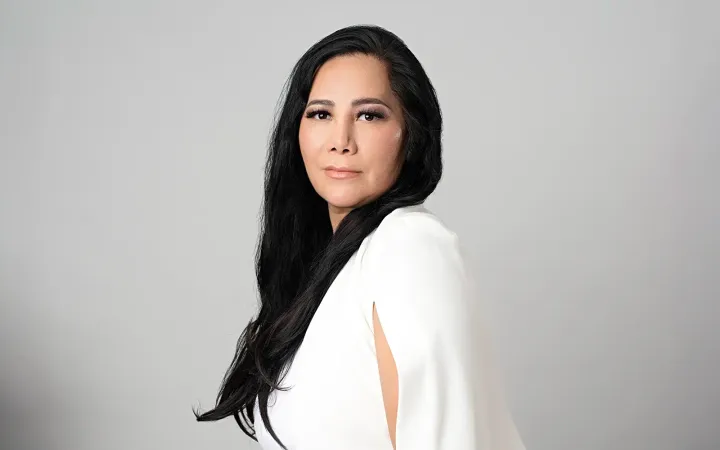
Por Stephanie Orozco, Licenciada en Ciencias de la Comunicación por la Facultad de Ciencias Políticas y Sociales de la UNAM con especial interés en comunicación política, derechos humanos, estudios de género y derecho a la no discriminación. Ha publicado artículos de opinión en medios digitales con perspectiva feminista interseccional y transincluyente. Actualmente es asesora en materia legislativa y comunicación en el Senado de la República.

Este no es un texto triste. Pero se basa en recuerdos agridulces. Las personas tenemos diferentes formas de contar recuerdos o anécdotas, vamos dejando sentimientos en cada vez que rememoramos y traemos el pasado al ahora. Así pasa con mi infancia, que tuvo un antes y un después cuando le dije a mi papá: tienes manos para hacerlo tú.
Hoy en día es una anécdota y hasta broma familiar. “Se acuerdan cuando Lupita no me quiso ayudar a dejar un vaso de agua y me dijo: pues tienes manitas, ¿no?”, cuenta mi papá. Se ríe y después voltea a verme con lo que creo que es cariño. Pero la historia yo no la recuerdo como la escucho, no fue graciosa para mí.
Tengo la certeza de que es la figura de mi mamá la que me hizo cobrar valor de defensa. He escuchado los “no” más contundentes con su voz. No he visto decisiones más firmes que las suyas. Mi abuela, su mamá, vive en los recuerdos en los que mis tías reafirman que fue una mujer que dejó en sus hijas la fuerza para vivir con la frase que decía y que tanto ha perdurado: “prepárate y trabaja para que no tengas que estirar la mano a tu esposo para pedir hasta para un kilo de jitomates”.
Regresando a la vez del dichoso vaso, recuerdo ser la niña que se acercaba y daba todo lo que los demás pedían. Ese día no era diferente a otro pero yo estaba ocupada siendo niña. Estaba jugando en mi propio mundo, uno al que no podía acceder con frecuencia y el que me sacaran de él me hizo cruzar el límite de lo que no era: una niña “grosera” o “respondona”. Por eso respondí así, porque ya no quería estar sirviendo en lo básico a alguien. No era solo un favor, era una forma de vida a la que muchos hombres están acostumbrados.
Según datos del Instituto Mexicano para la Competitividad (IMCO), en México las mujeres en promedio dedican 40 horas a la semana a tareas del hogar y de cuidados, mientras que un hombre destina 5.9 horas semanales. Las mujeres llevamos dobles o triples jornadas de trabajo, del que depende la subsistencia de otras personas: infancias, personas con discapacidad, enfermas y en general otros integrantes de la familia.
Cada vez menos, pero a quienes nacimos entre los años 1980 y 2000 crecimos con juguetes que nos enseñaban a maternar con bebés de plástico que cada vez se modernizaron más para que también aprendiéramos a cambiar pañales. Nos gustaba jugar a la “comidita” no para imaginarnos como grandes chefs, sino como la mamá que prepara cinco guisados a la vez para que la familia comiera. A través de comerciales y publicidades coloridas buscaron despertarnos un instinto maternal que no pedimos.
Pero quienes no crecen en contextos similares, en lugar de jugar, hay niñas que son encaminadas a una adultez temprana porque tienen que criar a sus hermanos y hermanas. Estamos hablando de niñas que pasaron de cuidar a un bebé de plástico a realmente hacer vivir y hacer sentir cuidada a otra persona en igual de vulnerabilidad que ellas. Niñas que son privadas del tiempo propio porque iban de la escuela a la casa no siendo este segundo lugar un refugio para la vida, sino un lugar de trabajo. Cabe destacar en esta precisión que hay mujeres que han ejercido el trabajo no remunerado desde la infancia, es decir, podemos hablar de explotación infantil en toda la magnitud de esa problemática que por años nos han hecho ver como uno de los peores crímenes.
A las mujeres nos enseñan desde muy chicas el cómo se hacen correctamente las labores del hogar. Aprendemos a barrer, trapear, usar cuchillos con cuidado para poder ayudar en la preparación de las comidas, a diferenciar entre el Cloro y el Pino, a curarnos, aprender a curar y, en las dinámicas familiares más grandes, a no quedarnos sentadas en la mesa ni disfrutar de la reunión porque tenemos que levantarnos a servir.
Lo que hoy veo como un acto de solidaridad hacia mis tías y mi mamá, de niña me resultaba la forma en la que las mujeres teníamos una oportunidad de reunirnos. Los hombres se quedan en la mesa, antes de comer y después de hacerlo tomando una copa, para hablar de sus temas y de todo eso que a ellos les interesa. Por su parte, las mujeres se quedan en la cocina: antes, por la preparación de los alimentos; durante, para seguir sirviendo a quienes se quedan con hambre; y después, para limpiar, o siendo más honesta, para comer “con calma y a gusto” o dicho en otras palabras “para que nadie las moleste”. Y ahí, en las cocinas se da la sobremesa de las mujeres de la familia. Se habla de los problemas de casa, de los hijos inconciliables, de las deudas impagables, de los problemas de alcoholismo y de todo aquello que debería de resolverse también con los hombres.
Las dinámicas familiares en México son tan distintas entre sí que esto puede repetirse cada cena de Navidad o Año Nuevo, pero también cada noche. Y en estos contextos, desafortunadamente, son las niñas quienes se involucran en conversaciones y situaciones que van marcando el cómo concebirán las dinámicas familiares en el futuro. Comienza a normalizarse la socialización de los problemas, pero en lo secreto. Es común empezar a escuchar de los dolores de las demás personas y de la mano de esto, al ver a sus madres preocupadas por estas situaciones, como si fuera un imán, atraen angustias que no les corresponden y por las que no pueden hacer casi nada: a nosotras mismas, en ese momento, se nos olvidaba que solo éramos unas niñas.
Es la familia nuestro primer centro de aprendizaje, por lo que, no es ninguna mentira decir que todo eso que aprendemos ahí es nuestro más grande reto. Aprender a diferenciar favores de responsabilidades y los actos de amor del trabajo no pagado, es uno de los grandes retos que obligan a ver a nuestros familiares no como solo integrantes de nuestra familia, sino como reproductores de conductas patriarcales. Desde niñas notamos eso y de adultas, estamos enfrentándonos a retos quizá más grandes: dejar de llamar amor a la injusticia.
(1/2)
Las opiniones expresadas son responsabilidad de sus autoras y son absolutamente independientes a la postura y línea editorial de Opinión 51.
Más de 150 opiniones a través de 100 columnistas te esperan por menos de un libro al mes.






Comments ()